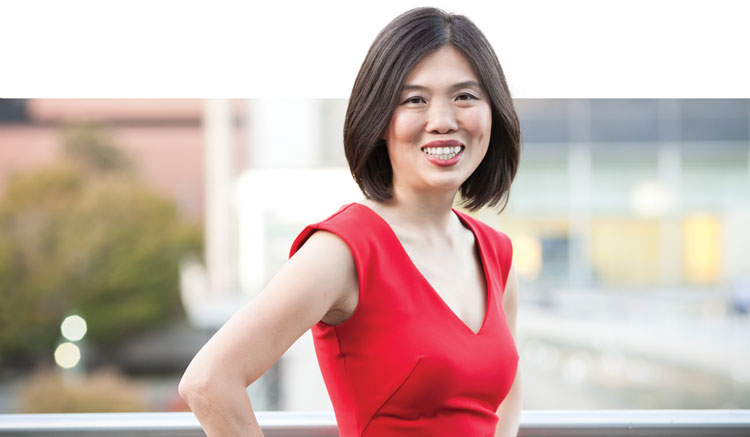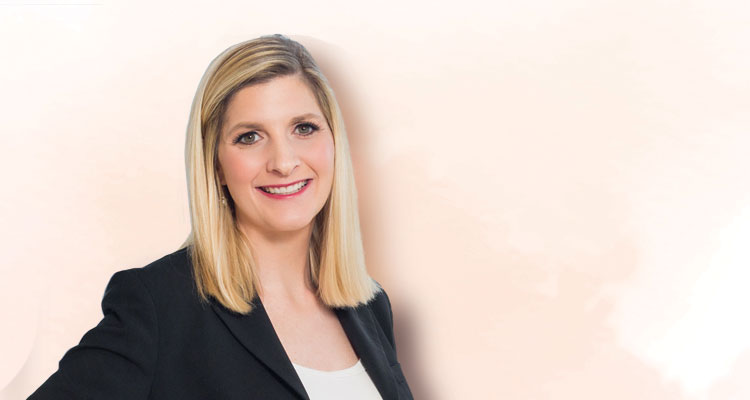Self-care isn’t selfish and can actually help your performance

Shutterstock
Women, especially mothers, carry a disproportionate share of the cognitive load when it comes to child rearing and running the household. This additional burden can lead to increased stress, especially for lawyers who are already under tremendous pressure.
An important strategy for managing stress and maintaining well-being is self-care. Self-care is defined as any activities that you do for yourself where you take steps to identify your own needs and meet them. It’s about regularly doing activities to nourish yourself. It means setting aside time to take proper care of yourself, and treating yourself as kindly as you treat others.
I talk about self-care as part of my Better Lawyering Through Mindfulness workshops, and often the participants in the room who need self-care resist the most. There’s an expectation that a good lawyer who is also a mother is not allowed to have any time outside those two roles—that any time spent caring for herself is time being “selfish.”
Even though the words “self-care” and “selfish” sound similar, they are actually opposite in meaning. When I practice self-care, I am taking the time to charge my own battery or fuel my tank so that I can perform better. As the saying goes, you can’t pour from an empty cup. In contrast, when I am being “selfish,” I am taking something away from another for my own gain or benefit.

Photo of Jeena Cho courtesy of JC Law Group
Self-care is defined as any activities that you do for yourself where you take steps to identify your own needs and meet them.
— Jeena Cho
This confusion in concepts often leads to feelings of guilt. This, in turn, can lead to a vicious cycle where the lawyer-mother continues to give without an opportunity to rest, rejuvenate and restore herself.
For at least the first five years of having children while practicing litigation full time, Stephanie Sparks, a partner at Jackson Walker in Dallas, was “convinced that self-care was just not possible for lawyers.” She fell into the trap that many lawyers fall into. “My mindset was that I would have to get caught up with all of my to-do lists at the office plus all of my to-do lists for my children before I could even contemplate doing something as frivolous as self-care.”
Unfortunately, there is never an ideal or convenient time for self-care, as Sparks eventually realized. “I continually thought that if I could just get to the end of a school year or a fiscal year or the case I was working on, then I could start taking care of myself. Of course, that never happened.”
For Sparks, incorporating self-care activities happened gradually. “It was an accumulation of many different events and a realization that something had to change or else I could not keep everything going.”
Emily Little is director, legal counsel, at Alliance Data in Powell, Ohio. She says, “By the end of 2017, I was as heavy as I’d ever been, exhausted and needed a different approach.” She remembers the date when she began her self-care journey. On Dec. 31, her kids “had spectacular meltdowns, and I just needed an hour away. There was a yoga class during nap time near my house, so I went.”
It’s important to note that there’s no prescription for what you should do for self-care or when. It’s all about understanding your own needs. Sparks realized something had to change when she started running out of steam. “I took baby steps—making doctor appointments that I had needed for years, trying workout classes and reading books for pleasure. I had to choose to prioritize these activities and literally schedule them in my Outlook calendar.”
Tamara B. Pow, managing partner of Strategy Law in San Jose, California, carves out time for self-care on weekends because “I can’t find time during the week. I go on long trail runs with girlfriends Saturday and Sunday mornings and sign up for half-marathons and other races to force myself to keep training.”
Mary Sackett, legislative aide to Supervisor Damon Connolly in Marin County, California, says her solution for self-care is 5:30 a.m. workouts with friends. “I find that this is the only time that cannot be taken away from me by work, my kids or my husband’s schedule. On Fridays, I schedule a 5:30 a.m. hike and constantly increase the number of invitations, usually resulting in three or four people.”
These activities are not just about getting exercise. They allow Sackett to feel connected to her community and fellow moms at her children’s schools. “I hear the latest, we share challenges and work through issues.” The early-morning routines help her to feel good and feel connected without the guilt “because I didn’t take time away from my children or my husband.”
Some mothers get help from their partners so they can find time for themselves. “My kids are now 2 and 5, and I am finally able to take some time for self-care,” says Elizabeth Shubov, a solo practitioner in Beverly Hills, California. “Lately, I have been going to yoga a few times a week and to the gym. My husband and I trade off with the kids on weekends when we can allow each other some time.”
life-changing
Often, self-care practices lead to compounding positive effects—when you exercise, you have more energy, your mind feels clearer, you’re better able to focus and you’re more productive.
“I finally realized that if I take care of myself, then I can better take care of my family and clients,” Sparks says.

Photo courtesy of Jackson Walker
It was an accumulation of many different events and a realization that something had to change or else I could not keep everything going.
— Stephanie Sparks
“As cliche as it is, yoga has truly changed my life,” Little says. “It has helped me lose weight and given me some time to myself, but also it gives me a place of self-reflection and an opportunity for a mental break, calmness, that I hadn’t found anywhere else in my life. Ultimately, I think I liked the way I felt after a yoga class and as a result just started prioritizing it. Before I knew it, it created a much bigger impact on my life than I could have anticipated.”
Shubov learned that fitting in self-care is always a balancing act. “When kids get sick or work is really busy, or both, all balance goes out the window. There are moments as a parent when my needs don’t and shouldn’t come first. I am on a continual journey to accept that and care for myself and my family in the best way possible for all of us. In doing so, I’ve learned to trust that interruptions in my self-care routines are temporary, and it is up to me to prioritize that time again once schedules return to normal.”
Many mommy lawyers I interviewed shared that they do feel guilty when taking time for themselves. Oakland, California-based Tracy Scanlan, director of client development and legal affairs for Paragon Legal, says, “It’s hard to find time to actually enjoy my family, let alone find time for myself. Sometimes I do feel guilty for taking some time for myself instead of folding yet another load of laundry. But I try to remind myself that if I never slow down and just became a martyr for my family, that wouldn’t help anyone.”
There is no single or easy solution for every lawyer who is also a mother and suffering fatigue. But the common thread is recognizing that self-care is both healthy and necessary. How you engage in self-care is entirely a personal decision.
This article appeared in the March 2019 issue of the ABA Journal with the headline "Self-care for mommy lawyers: Taking planned breaks, even when busy, isn’t selfish and can actually help your performance."



